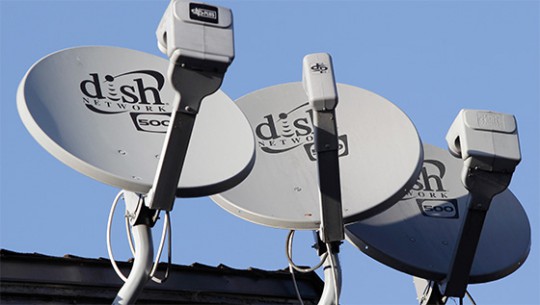Florida Gets Legal Win On Satellite TV Taxes
January 9, 2018
Ending years of legal battling about the issue, the U.S. Supreme Court on Monday refused to take up a challenge to the constitutionality of a Florida law that sets different tax rates for satellite and cable-television services.
The U.S. Supreme Court, without explanation, turned down Dish Network’s appeal of a ruling last year by the Florida Supreme Court that upheld the law.
The state’s communications-services tax is 4.92 percent on the sale of cable services and 9.07 percent on the sale of satellite-TV services. Local governments also can impose communications-services taxes on cable, with rates varying.
Dish Network contended the different state tax rates on satellite and cable are a form of protectionism that violates the “dormant” Commerce Clause, which bars states from discriminating against interstate commerce.
“The decision below (at the Florida Supreme Court) is a green light to adopt protectionist measures encumbering the flow of commerce across state lines,” Dish Network argued in a November brief asking the U.S. Supreme Court to decide the case. “Even though Commerce Clause doctrine is a morass — indeed, precisely because it is a morass — it is vital for the (U.S. Supreme) Court to step in.”
But Attorney General Pam Bondi’s office, which represented the Florida Department of Revenue, argued in a brief that a federal telecommunications law prevents local governments from taxing satellite services. As a result, the brief said, the state set a higher tax rate for satellite services and shares part of the money with local governments. Meanwhile, local governments can tax cable services.
“If a state taxes communications services at the state and local levels, as Florida does, the only way to ensure that the state receives the same revenue from satellite as other communications services while ensuring that local governments may also receive revenue is to tax satellite at a higher rate and share the revenue with local governments,” the brief said.
The state’s 1st District Court of Appeal in 2015 ruled in favor of the satellite-television industry and raised the possibility that Florida would have to pay refunds to satellite companies. But the Florida Supreme Court in April unanimously overturned that decision, with justices saying in a main opinion that they did not find the law was “enacted with a discriminatory purpose.”
A key part of the case at the Florida Supreme Court focused on arguments by the satellite companies that the different tax rates benefited cable companies that are “in-state interests” at the expense of “out-of-state” satellite operators. But Justice Peggy Quince, writing for the court, rejected such a distinction and noted that the state’s largest cable operators are headquartered outside of Florida.
“Cable is not a local, in-state interest any more than satellite,” Quince wrote. “While it may be true that cable employs more Florida residents and uses more local infrastructure to provide its services, the Supreme Court has never found a company to be an in-state interest because it had a greater presence in a state.”
by Jim Saunders, The News Service of Florida
Comments
One Response to “Florida Gets Legal Win On Satellite TV Taxes”




It is my understanding that both satellite and cable have had millions of customers disconnect in the last couple of years. They both are dying as a result of streaming services. (Roku and the like)